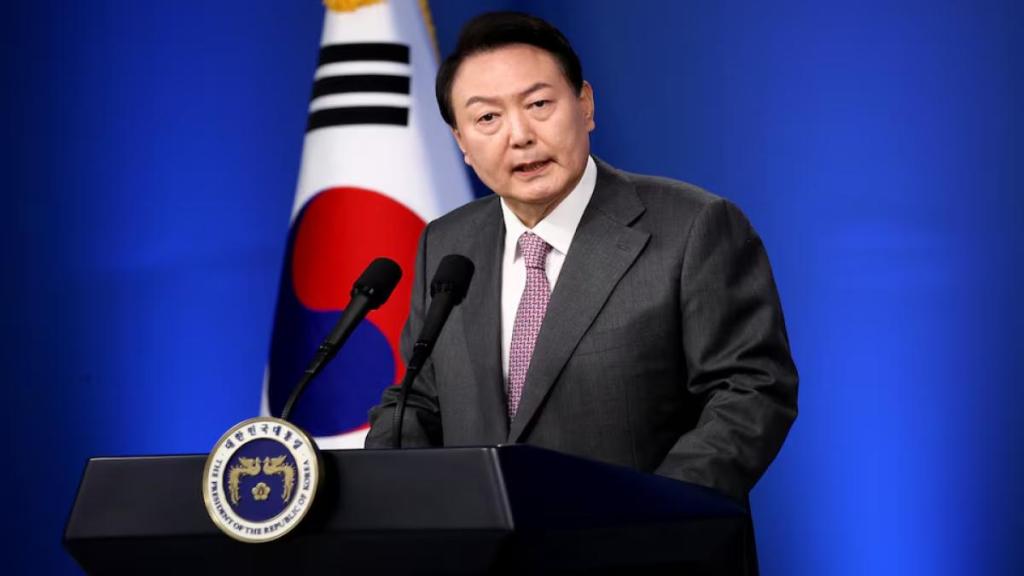South Korea’s impeached President Yoon Suk Yeol was released from prison on Saturday after a court decided to cancel his arrest. This decision came one day after the Seoul Central District Court allowed him to stand trial for rebellion without being detained.
TV footage showed Yoon waving to his supporters, clenching his fists, and bowing deeply as they cheered, shouted his name, and waved South Korean and U.S. flags. He then got into a black van to return to his presidential residence in Seoul.
In a statement shared by his lawyers, Yoon thanked the court for “correcting illegality” and also expressed appreciation for his supporters. He asked people who were on hunger strikes against his impeachment to stop their protests.
Yoon was arrested in January after issuing a martial law decree on December 3, which caused serious political problems in the country. The opposition-controlled National Assembly later voted to impeach him, suspending him from office. The Constitutional Court is still deciding whether to officially remove him or reinstate him. If his impeachment is upheld, South Korea will hold a national election to choose a new president within two months.
The Seoul court said it released Yoon after reviewing the legality of the investigation against him. Yoon’s lawyers argued that the authorities did not have legal permission to arrest him for rebellion. The court also pointed out that Yoon’s arrest period had expired before he was formally charged.
After the court’s decision, prosecutors chose not to appeal. Under South Korean law, prosecutors can still hold a suspect while appealing, but in this case, they decided not to challenge the release.
The decision sparked strong criticism from the Democratic Party, which led Yoon’s impeachment. The party accused prosecutors of being loyal to Yoon and urged the Constitutional Court to quickly dismiss him to avoid further unrest.
The controversy began with Yoon’s martial law decree, which sent hundreds of troops and police officers to the National Assembly. Yoon’s opponents say he used the military to stop lawmakers from voting on the decree, but Yoon insists he was trying to maintain order. Lawmakers eventually voted to cancel his decree.
Investigators have charged Yoon with rebellion, accusing him of overstepping his authority. If convicted, he could face life imprisonment or even the death penalty. Although South Korean presidents usually have immunity from most criminal charges, rebellion and treason are exceptions.
Yoon claims that his actions were meant to warn the public about the opposition party, which he says was blocking his political agenda. He called the National Assembly “a den of criminals” in his martial law speech.
The political divide between conservatives and liberals in South Korea is deep, and the situation surrounding Yoon’s impeachment has caused widespread protests. Experts warn that whatever the Constitutional Court decides, the division in the country is likely to grow even stronger.
(With PTI Inputs)

